- News
- Reviews
- Bikes
- Components
- Bar tape & grips
- Bottom brackets
- Brake & gear cables
- Brake & STI levers
- Brake pads & spares
- Brakes
- Cassettes & freewheels
- Chains
- Chainsets & chainrings
- Derailleurs - front
- Derailleurs - rear
- Forks
- Gear levers & shifters
- Groupsets
- Handlebars & extensions
- Headsets
- Hubs
- Inner tubes
- Pedals
- Quick releases & skewers
- Saddles
- Seatposts
- Stems
- Wheels
- Tyres
- Tubeless valves
- Accessories
- Accessories - misc
- Computer mounts
- Bags
- Bar ends
- Bike bags & cases
- Bottle cages
- Bottles
- Cameras
- Car racks
- Child seats
- Computers
- Glasses
- GPS units
- Helmets
- Lights - front
- Lights - rear
- Lights - sets
- Locks
- Mirrors
- Mudguards
- Racks
- Pumps & CO2 inflators
- Puncture kits
- Reflectives
- Smart watches
- Stands and racks
- Trailers
- Clothing
- Health, fitness and nutrition
- Tools and workshop
- Miscellaneous
- Buyers Guides
- Features
- Forum
- Recommends
- Podcast
review
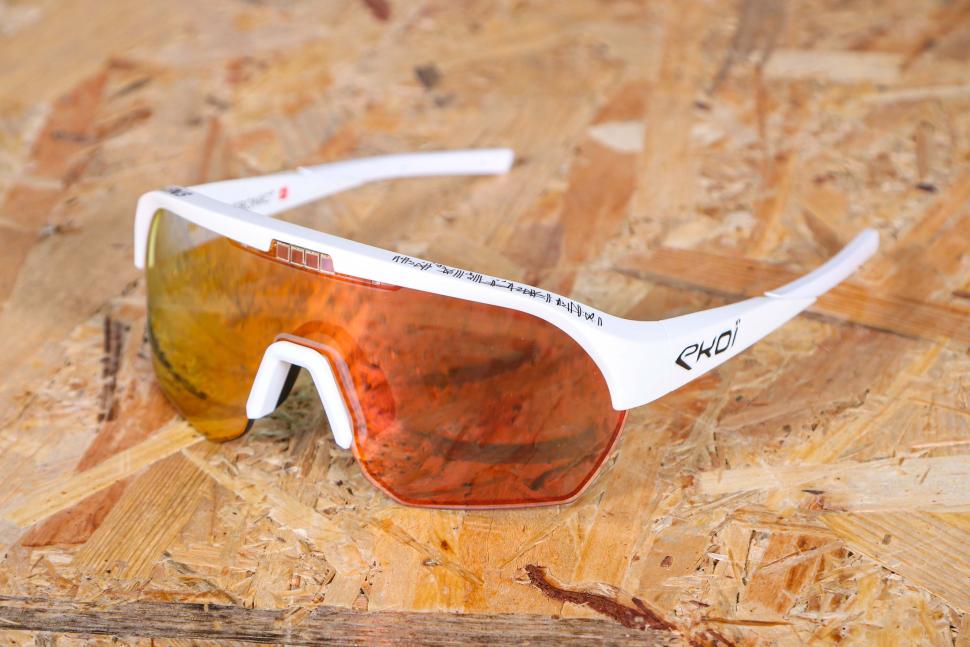 2023 Ekoi Electronic Lenses EKOI E-LENS EVO White Revo bleu Revo red.jpg
2023 Ekoi Electronic Lenses EKOI E-LENS EVO White Revo bleu Revo red.jpg£362.07
VERDICT:
Quicker to change than standard photochromic glasses, but you pay extra for that speed
Incredibly quick response to light conditions
Great fit
Adjustable arms give secure fit
Price
No nose adjustment
Weight:
37g
Contact:
At road.cc every product is thoroughly tested for as long as it takes to get a proper insight into how well it works. Our reviewers are experienced cyclists that we trust to be objective. While we strive to ensure that opinions expressed are backed up by facts, reviews are by their nature an informed opinion, not a definitive verdict. We don't intentionally try to break anything (except locks) but we do try to look for weak points in any design. The overall score is not just an average of the other scores: it reflects both a product's function and value – with value determined by how a product compares with items of similar spec, quality, and price.
What the road.cc scores meanGood scores are more common than bad, because fortunately good products are more common than bad.
- Exceptional
- Excellent
- Very Good
- Good
- Quite good
- Average
- Not so good
- Poor
- Bad
- Appalling
These Ekoi E-Lens Evo glasses use an electronic lens to adapt to the surrounding light conditions, and they do that in the fastest time I've ever witnessed. If you aren't concentrating you won't even notice – it's not just a gimmick. It does make them very pricey, though, so you'll need to decide whether those fractions of a second are worth the outlay.
For more options, check out our guide to the best cycling sunglasses.
> Buy now: Ekoi E-Lens Evo White Revo bleu Revo red for £362.07 from Ekoi
Even without the electronic wizardry of the lens, the Ekoi is still a high-performance pair of sunglasses with a secure fit, helped by fully adjustable arms that you can tweak to wrap around the shape of your head, and a grippy nose bridge that stops them moving when things get sweaty.
There is no adjustment of the nose bridge, like you get on some glasses, but I didn't find an issue with that. I rarely have to tweak glasses to fit, but if you do, it's worth bearing in mind. You also get two sets of arms, one short pair, one long, to help achieve the right fit.
I found the E-Lens Evos very comfortable to wear, and most of the time I didn't even notice that I had them on once I'd been riding a bit.
It was only when I glanced over my shoulder and could see just a small section of frame that I was reminded of them. It's not enough to obscure your vision, though – my view was never hampered at all.
You also get great clarity from the lens. The lens is Revo Red on the outer side, with the inner being Revo Blue, and together they bring a slightly bluish hue to the outside world, but not enough to distort the colours overall.
Being polarised means the lens blocks reflected light, so you always get a crystal clear view in front of you.
The lens itself is created by Optrel and is called Shadetronic. It works by liquid crystals within the lens reacting to the changing electrical voltage generated by the lens's solar cells. The brighter the outside conditions, the darker the lens goes, and vice-versa.
Because the glasses are charged by the sun there is nothing to plug in and everything is waterproof, so no worries if you get caught out in the rain.
The response time to the shade change is the fastest I've ever known from any photochromic glasses I've worn. Ekoi says it happens 'in less than a 10th of a second', and you literally cannot notice these lighten or darken unless you really focus on them as you move from full sun to shade and back again.
The lens darkens more at the top which is a real bonus as it minimises glare from the sun high up in the sky without affecting brightness levels when you are looking down at the road. The light range goes from category 2 to category 3, from 20% to 80% ABS (the amount of light absorbed by the lens).
I found them fine to use on cloudy days right up to bright sun.
I've been testing these since early summer, and we had one of the highest levels of grass pollen I've known for a few years. But with no gaps in the lens and plenty of wraparound to keep airflow at bay, I didn't suffer with itchy eyes at all.
As for the build quality, there is nothing to complain about here – these are very well put together glasses.
The frame is made from Grilamid, which is a thermoplastic used by the majority of manufacturers, while the lens is made from polycarbonate.
The white frame option on test looks to be resistant to stain from sweat, road spray and rain, and there are some cool little details like the arms being held in place by small screws rather than just being clipped into the frame.
Value
The price fluctuates with the exchange rate, and is currently £362.07 (at one point it was £297.37) – this technology doesn't come cheap. These are some of the most expensive glasses we've reviewed, beaten only by the £543 Bollé Lightshifters that were fitted with prescription lenses, and the £699 Everysight Raptor 'smart' glasses, which had GPS and a camera built in.
Even the Engo Eyewear Engo 2s, which connect to your phone and come with a heads-up display, are cheaper at around £280.
If you're happy with a fractionally slower change then photochromic options can be had for a lot less, like the Rudy Project Deltabeats at around £130 that Anna tested last year, or the Magicshine Windbreakers that Suvi reviewed earlier this year, at just £49.99. They won't react as fast as the Ekois, but that's a big saving in cash.
Conclusion
For me personally, I'm not sure I could justify the cost over some photochromic glasses I've worn, but if you want a pair of sunnies that have the fastest reaction times, you will enjoy using the Ekois. They are expensive, but the performance is very impressive, as is the overall build quality, and they fit really well too.
Verdict
Quicker to change than standard photochromic glasses, but you pay extra for that speed
road.cc test report
Make and model: Ekoi E-Lens Evo electronic glasses
Size tested: One size
Tell us what the product is for and who it's aimed at. What do the manufacturers say about it? How does that compare to your own feelings about it?
Ekoi says: "EKOI is proud to offer you the latest model of glasses, mounted with the best LCD lens in the world.
Developed by our R&D team and the professional riders from the Lotto Soudal, Cofidis and Euskaltel Euskadi teams, the Ekoï E-LENS EVO by SHADETRONIC® electronic glasses are the best electronic automatic darkening sunglasses in the world !
The glasses are always ready to use : powered by solar energy, there have no batteries to charge or replace.
The continuous and fully automated tint adjustment adapts to light conditions by darkening or brightening the lens, which changes from light (cat. 2) to dark (cat. 3) and from dark to light instantly !
They are particularly recommended when lighting conditions are changing."
Tell us some more about the technical aspects of the product?
From Ekoi:
-The world's fastest electronic LCD lens
- Darkens or brightens depending on the brightness in less than a 10th of a second (blink of an eye)
- Your vision adapts in real time to the brightness
- 100% anti-UV protection (UVA and UVB)
- Lens made in Switzerland
- Solar powered, no batteries or batteries to charge or replace, ready to use right out of the case
- Ultra light: 37g.
- Ultra light, flexible and durable Grilamid frame with Ekoï logos and customizable inserts.
- GRIP arm sleeves and nose bridge for optimized support and comfort.
- Comes with two pairs of adjustable sleeves, short and long, to fit all faces.
- Model not compatible with optical insert.
LENS :
- Category 2-3 lens in unbreakable active matrix polycarbonate
- Anti-scratch coating
- Polarized : Blocks reflected light for glare-free vision and high contrast
- Clear visualization of all electronic screens : meters, smartphones ...
- Operating temperatures: -20 ° C to + 50 ° C
- 100% waterproof (IP68 certification)
- Designed and made in Switzerland
- 2 years warranty
FRAME :
- Ultra light frame in GRILAMID
- Temple sleeves and GRIP nose bridge for optimized support and comfort
- Comes with two pairs of adjustable sleeves, short and long, to fit all faces
- Made in Italy.
CE (NF EN ISO 12312-1:2013 + ISO 12312-1 2013) regulation complies with laws of European Union countries
Use
- Road, Triathlon, Gravel, MTB.
Material
- GRILAMID frame
- Polycarbonate lens
- CE approved.
Rate the product for quality of construction:
8/10
Rate the product for performance:
9/10
Rate the product for durability:
8/10
Rate the product for weight (if applicable)
8/10
Rate the product for comfort (if applicable)
8/10
Rate the product for value:
4/10
Tell us how the product performed overall when used for its designed purpose
They are great for when your ride keeps transitioning between bright sunshine and shaded areas.
Tell us what you particularly liked about the product
Instant reaction to light changes.
Tell us what you particularly disliked about the product
No nose adjustment to get the perfect fit.
How does the price compare to that of similar products in the market, including ones recently tested on road.cc?
They are much pricier than photochromic glasses, and even cost more than some glasses with electronic heads-up displays.
Did you enjoy using the product? Yes
Would you consider buying the product? For me, I'm not sure I could justify the extra cost over photochromic glasses.
Would you recommend the product to a friend? Yes
Use this box to explain your overall score
The speed at which these adapt to the light is very impressive, and the quality and fit are very good too. The technology comes at a huge cost, though, which keeps them at 7 for 'good' overall.
About the tester
Age: 44
I usually ride: This month's test bike My best bike is: B'Twin Ultra CF draped in the latest bling test components
I've been riding for: Over 20 years I ride: Every day I would class myself as: Expert
I regularly do the following types of riding: time trialling, commuting, club rides, sportives, fixed/singlespeed,
Since writing his first bike review for road.cc back in early 2009 senior product reviewer Stu has tested more than a thousand pieces of kit, and hundreds of bikes.
With an HND in mechanical engineering and previous roles as a CNC programmer/machinist, draughtsman and development engineer (working in new product design) Stu understands what it takes to bring a product to market. A mix of that knowledge combined with his love of road and gravel cycling puts him in the ideal position to put the latest kit through its paces.
He first made the switch to road cycling in 1999, primarily for fitness, but it didn’t take long for his competitive side to take over which led to around ten years as a time triallist and some pretty decent results. These days though riding is more about escapism, keeping the weight off and just enjoying the fact that he gets to ride the latest technology as part of his day job.
Latest Comments
- AidanR 6 hours 54 min ago
Bloody hell... How are you doing now?
- ktache 7 hours 3 min ago
And I liked endura too. Got a nice long sleeve mostly merino long sleeve a little while back, in orange.
- matthewn5 7 hours 31 min ago
No, the Ebay lights have been around for several years, this Lezyne light just appeared.
- chrisonabike 7 hours 47 min ago
They shouldn't worry - the second part of the "tariff" refrain is "they can make it in US and they'll do very well".
- Mr Blackbird 8 hours 19 min ago
"At the going down of the sun, it will get in our eyes and cause us to crash into things."
- Rendel Harris 8 hours 27 min ago
Been living in the area thirty years now and Brixton Cycles (and local riders wearing their famed Rastafarian colours jersey) has been an iconic...
- chrisonabike 10 hours 32 min ago
Does the "super-loud yellow" also help alert (non-deaf / non-earbud-wearing) pedestrians? Or will it just mean dogs bark at me?
- Festus 11 hours 23 min ago
One thing that bothers me is the use of antidepressant med and driving, it never gets picked up by police. Most of these types of medicines state...
- chrisonabike 13 hours 23 min ago
Indeed - but again these are perhaps questions we should keep asking. Even if the immediate answer is "well we are where we are" or "how on earth...
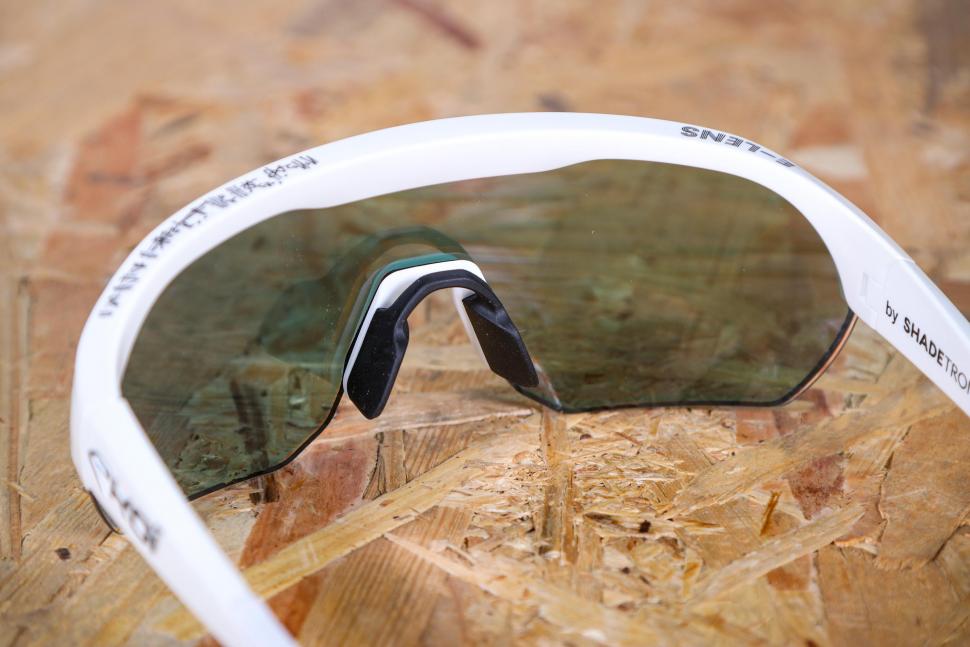
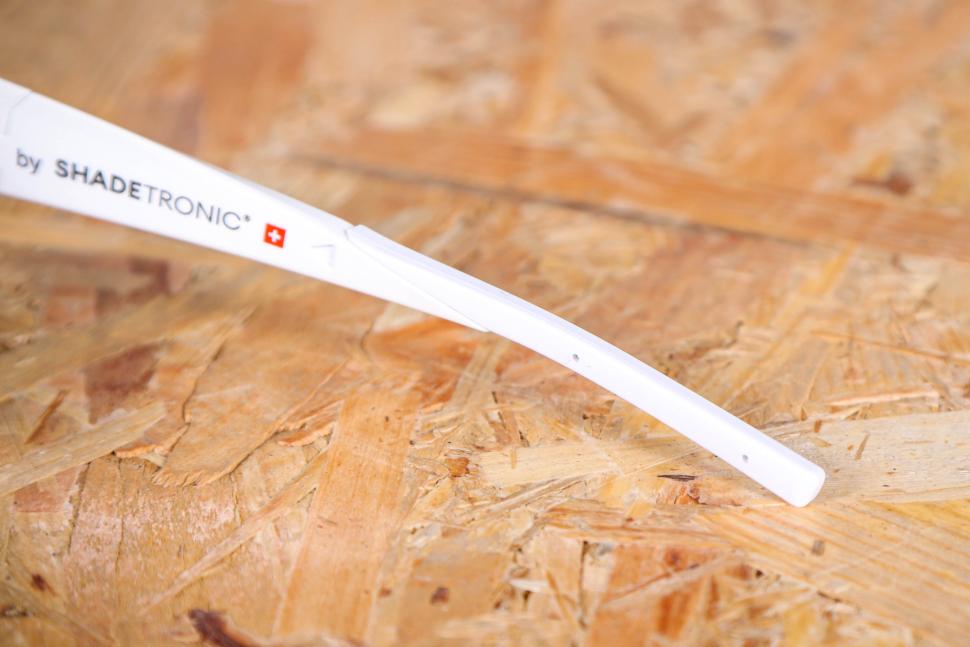










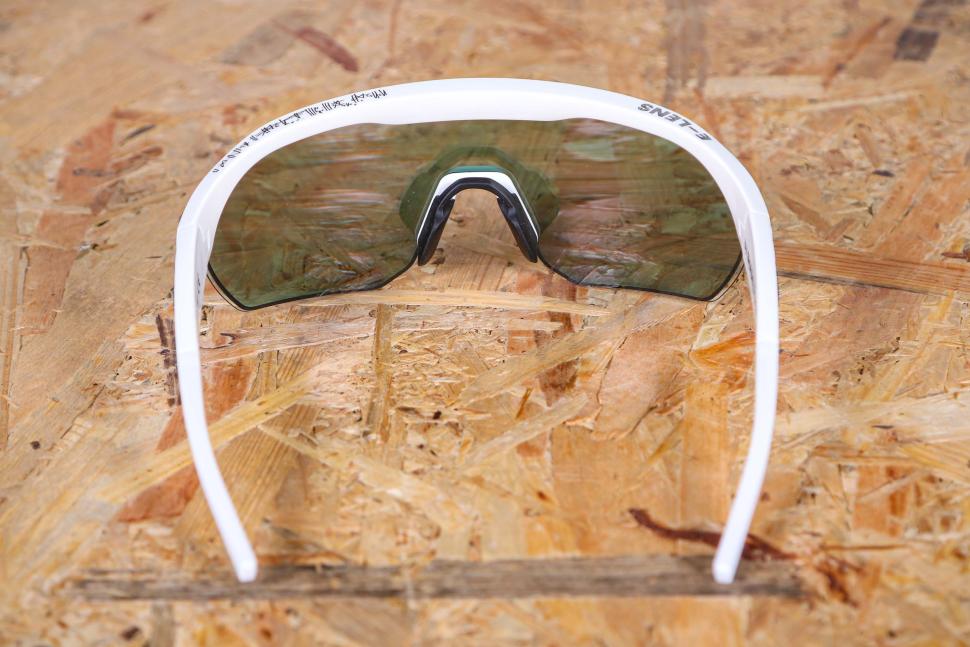
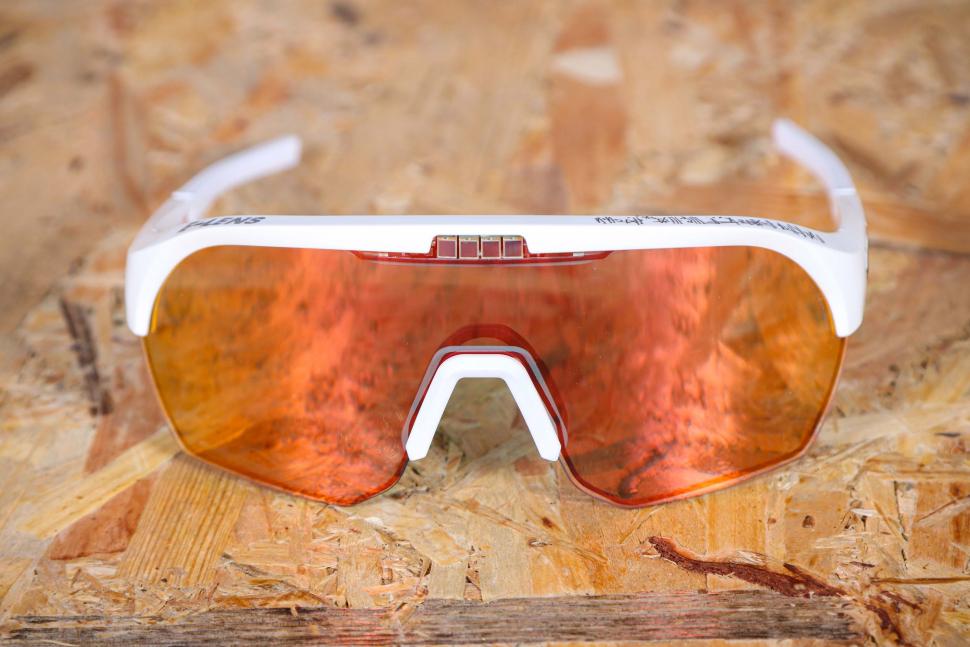
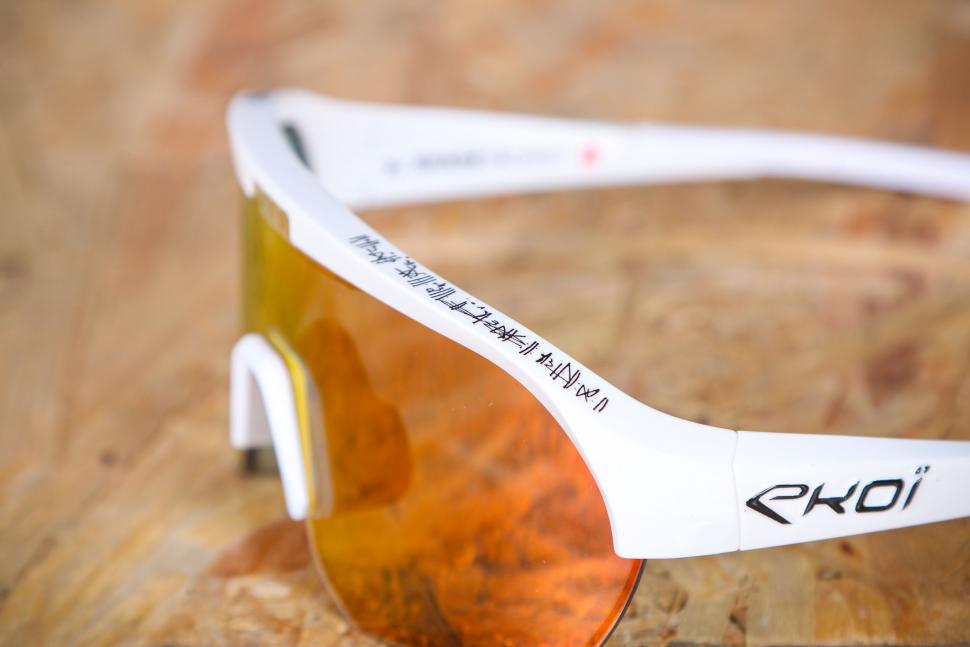
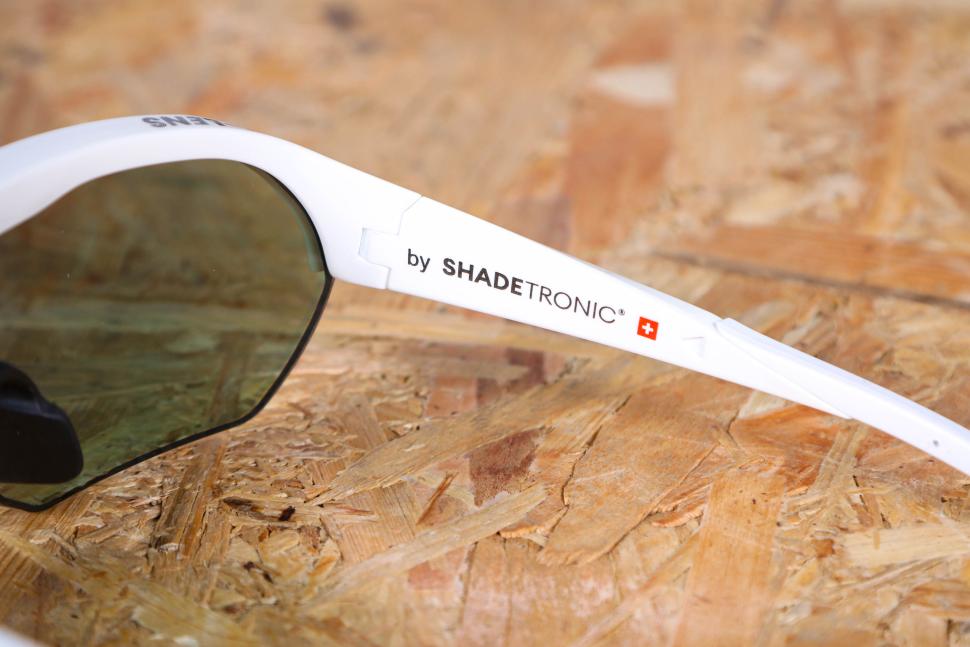

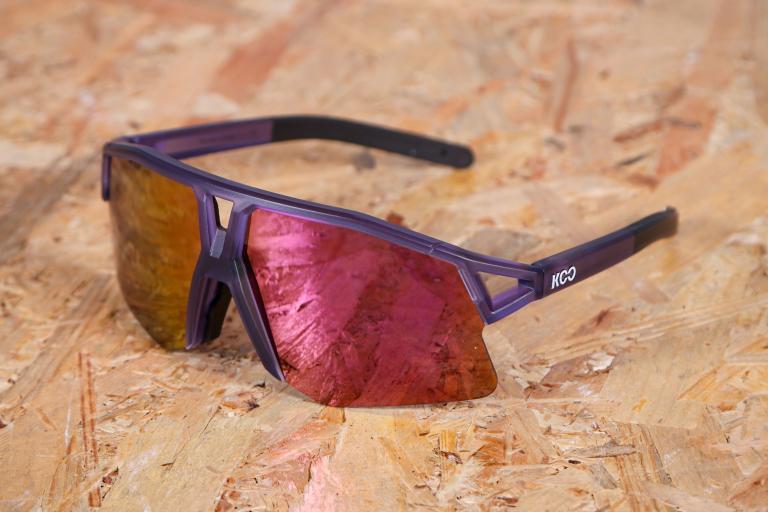
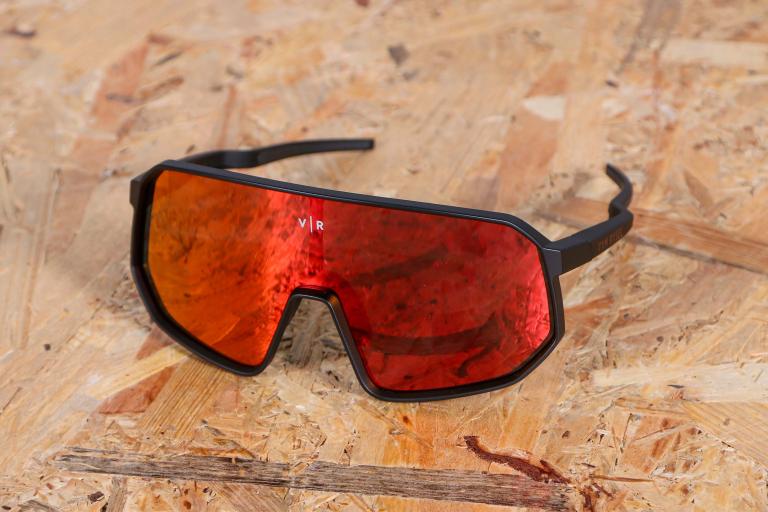
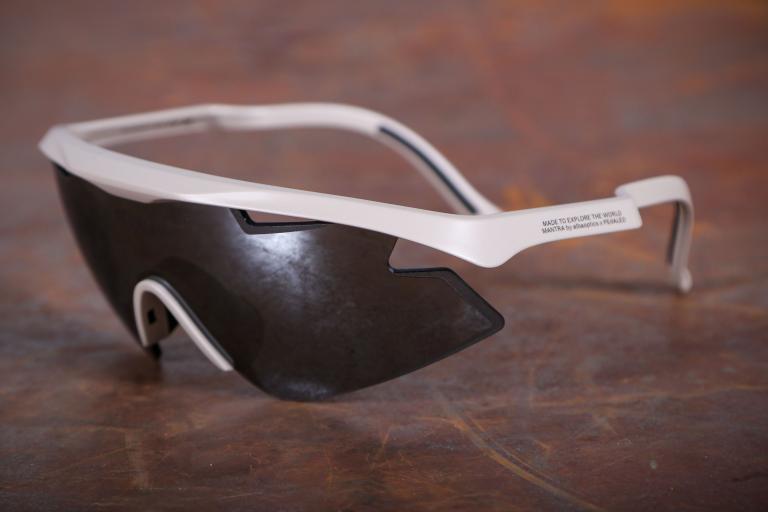

Add new comment
9 comments
I use photochromic lenses on Koo glasses (and had rudy projects for 10 years beforhand) - both chosen becasue they are some of the few that allow prescription clip ins. The only time either of these lenses felt slow was on wooded descents where the light was switching between light and shade....i like the tech but the price, though probably appropriate, is prohibitive.
I would like to know how they would perform if you were wearing a cycling cap with those sunnies on. Im sure the peak of the cap would mess with the sensor.
Presumably that is the same for ordinary photochromics - they can only respond to the light falling on them. Then again, if the light is not falling on them, where's the problem anyway?
No, these have a solar panel and (maybe) a sensor that are separate from the lens. So you could accidentally cover it up, depending on where it's located, and the lens would go full bright. It's possible the solar panel is the sensor, in which case it's at top centre of the glasses. Just like if you have your phone screen on auto brightness in sunlight, if you accidentally shade the wrong edge (usually the top) the screen suddenly goes unreadably dark.
Ordinary photochromics, if you cover up half of the lens, just that half goes clear.
They're cool, and I have the disposable income, but for me to even consider something like these they'd need to have the most scratch resistant coating known to mankind on both sides. I should be able to scrape bugs off on the concrete and finish cleaning with steel wool.
Any idea how the light to dark ratio compares to photochromics? I've had several of those, and they all seemed a bit too low contrast. I'd like them more transparent for night riding, but with an even darker tint for bright sunlight. And of course my last pair I lost, so there's another argument against buying them.
If you are looking for sunglasses which are suitable for night time use as well as sunny days, I can recommend the Julbo photochromic ones. Excellent quality frames and lenses, much, much better quality than Oakley, for example. The colour saturation under woodland cover is fantastic, and they change very quickly.
Different photocromics have different maximum/minimum levels of light transmission, so you'd need to check exactly what your ones say. But roughly 20 - 80% VLT (which is what these offer) seems pretty average - the ones I use are 20 - 85% VLT.
I'm quite sensitive to bright lights and spend much of my time outside wearing sunglasses, but there's no way I'd spend that on a pair.
I'm quite happy with my Rudy Project glasses with ImpactX 2 photochromic lenses.
I am very happy with some photochromatic cycling glasses from Lidl for about €12. Given my propensity for losing the buggers I wouldn't want to spend 30x more. Haven't noticed speed of reaction causing any problems either.